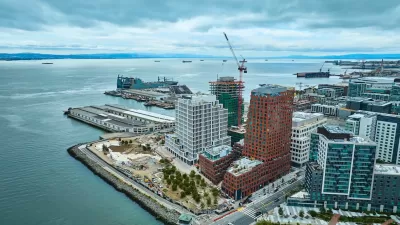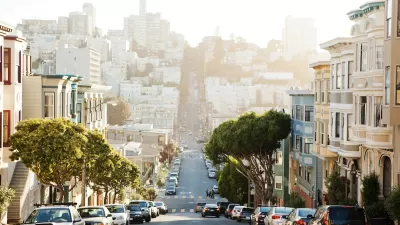SF Park is an outstanding success when measured by 'ticket anxiety'; i.e. the new program allows motorists to reduce the likelihood of being ticketed by making payment easier and allowing for longer parking stays, thus avoiding a $55-65 citation.
Payment by credit card. Pay for extra time. Pay remotely by smart phone. All these innovations enable motorists to escaped the dreaded citation. These improvements in the SF Park program are in addition to 'dynamic pricing' of parking spaces that works to increase parking space availability by increasing prices when spaces are in greatest demand.
"The city's parking cops are issuing fewer tickets for meter violations in neighborhoods where the experiment has been applied.
Prior to the new meters, 55 percent of the revenue came from payments drivers used to buy time and 45 percent from fines. After the new meters went in, the amount from payments increased to 70 percent and the amount from fines plummeted to 30 percent.
The old meters in neighborhoods not covered by SFpark only accept payment by coins and prepaid parking cards. In addition, the new meters have less restrictive time limits, generally allowing drivers to park for four hours or more. For a 45-cent fee, drivers even can add more time remotely if their meter is about to expire."
Thanks to MTC-ABAG Library
FULL STORY: SF's new parking program reduces ticketing anxiety

Maui's Vacation Rental Debate Turns Ugly
Verbal attacks, misinformation campaigns and fistfights plague a high-stakes debate to convert thousands of vacation rentals into long-term housing.

Planetizen Federal Action Tracker
A weekly monitor of how Trump’s orders and actions are impacting planners and planning in America.

In Urban Planning, AI Prompting Could be the New Design Thinking
Creativity has long been key to great urban design. What if we see AI as our new creative partner?

King County Supportive Housing Program Offers Hope for Unhoused Residents
The county is taking a ‘Housing First’ approach that prioritizes getting people into housing, then offering wraparound supportive services.

Researchers Use AI to Get Clearer Picture of US Housing
Analysts are using artificial intelligence to supercharge their research by allowing them to comb through data faster. Though these AI tools can be error prone, they save time and housing researchers are optimistic about the future.

Making Shared Micromobility More Inclusive
Cities and shared mobility system operators can do more to include people with disabilities in planning and operations, per a new report.
Urban Design for Planners 1: Software Tools
This six-course series explores essential urban design concepts using open source software and equips planners with the tools they need to participate fully in the urban design process.
Planning for Universal Design
Learn the tools for implementing Universal Design in planning regulations.
planning NEXT
Appalachian Highlands Housing Partners
Mpact (founded as Rail~Volution)
City of Camden Redevelopment Agency
City of Astoria
City of Portland
City of Laramie




























